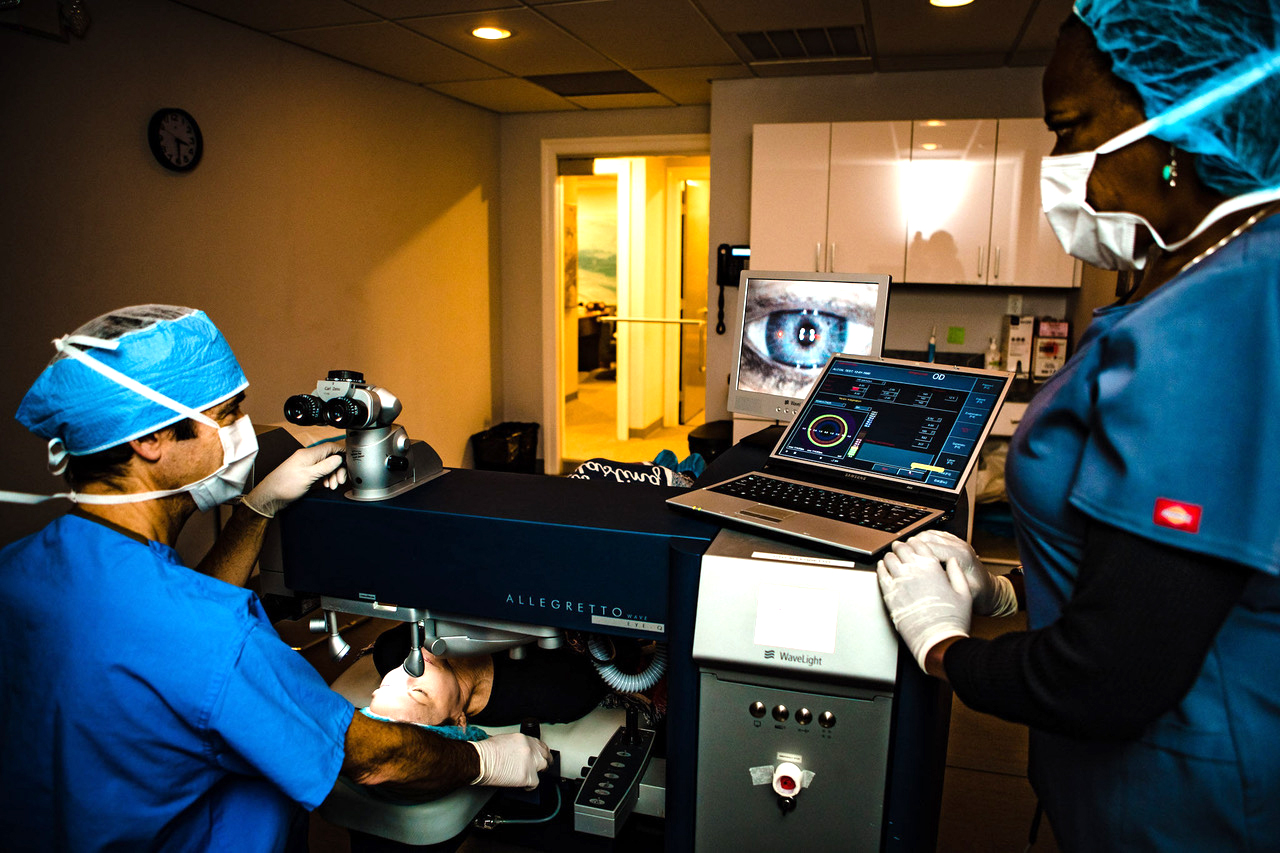LASIK after Cataract Surgery: Not too late for vision without glasses

As published in The Women's Journal 2019, reprinted here with permission:
Laser refractive surgery, including LASIK and PRK, has allowed millions of patients freedom from eyeglasses. First introduced in the 1990s, improved technology has allowed safer and more accurate correction of nearsightedness, farsightedness and astigmatism. What was once pioneering has become one of the most common surgical procedures in the United States, with approximately one million performed yearly.
Modern cataract surgery, in addition to restoring eyesight, can also correct nearsightedness and farsightedness, reducing the need for distance glasses for most patients. With advanced technology lens implants, astigmatism and the need for reading glasses can also be addressed. Although involving some out of pocket expense, more and more patients are taking advantage of these improved procedures to gain enhanced visual function.
Despite available advances, many patients following cataract surgery remain dependent upon eyeglasses. Whether due to eye conditions which limited alternatives, cost concerns at the time of surgery which influenced choices, or lack of options at the time of surgery (perhaps surgery was done before new technologies were available), some patients express the desire to later improve their vision.
Laser vision correction today can reduce the need for glasses even following previous cataract surgery. The newest lasers and improved techniques have been used to fine tune results of advanced technology lenses. These same procedures can correct even larger prescriptions remaining after traditional surgery, even if the initial procedure was performed years earlier.
If you are still wearing glasses after cataract surgery, especially for distance vision, you may be a candidate for laser vision correction. A thorough examination is important to determine other conditions which may limit benefits. Particularly after old surgeries with unexpected or disappointing results, a careful evaluation may uncover problems which could make laser surgery inappropriate, and may also reveal other conditions requiring treatment.
Having focused my 25 year career on cataract and corneal surgery, including laser vison correction, I consider refractive preferences for every surgical patient. Additionally, I always discuss expectations, and consider all ocular and medical conditions which might dictate decision-making. As in all surgical plans, identifying and discussing surgical options is vital to satisfying results. Patients today are happier than ever, and new technologies can be employed to improve results of previous procedures.
Photo: Dr. Jeff Minkovitz, LASIK Surgeon


